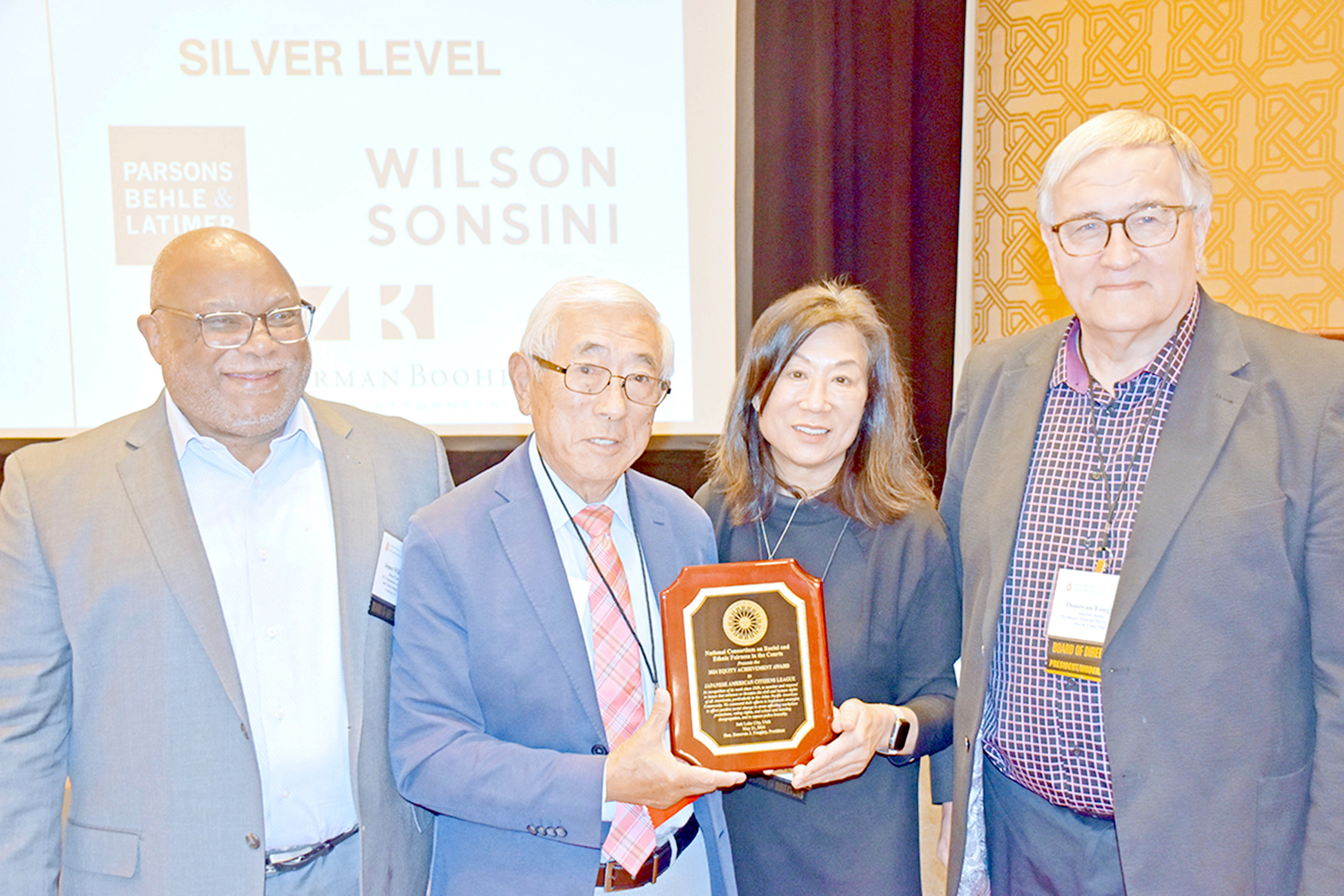
Pictured (from left) are James Williams, Floyd Mori, Shirley Ann Higuchi and Donovan Foughty with the Equity Award. Williams and Foughty are members of the National Consortium for Racial and Ethnic Fairness in the Courts board of directors. Williams is the former chief public defender in Chatham and Orange counties in North Carolina, while Foughty is a judge in the Northeast Judicial Court in Bismarck, N.D.
By Ray Locker, Contributor
The JACL was honored for its civil rights work by the National Consortium for Racial and Ethnic Fairness in the Courts during the group’s annual conference in Salt Lake City on May 21.
The consortium is dedicated to eliminating unfairness in the judicial system against people of color and marginalized groups. Its leader are judges, lawyers and court officers from around the country.
Floyd Mori, a former president and executive director of the National JACL, accepted the award from Shirley Ann Higuchi, chair of the Heart Mountain Wyoming Foundation and a consortium board member.
Heart Mountain nominated JACL for the consortium’s Equity Award and cited its work on behalf of migrants separated from their families at the border, civil rights and reparations for Black Americans.
Higuchi said JACL was an ideal recipient of the award, particularly in Salt Lake City, which was the group’s home during World War II when Japanese Americans were forced from the West Coast and incarcerated in 10 concentration camps.
Mori, who now lives in Salt Lake City, also led a panel on the Japanese American incarceration in Utah during the war. More than 11,000 Japanese Americans, most of them from the San Francisco area, were incarcerated at the camp in Topaz, about 110 miles south of Salt Lake City.
In a presentation the next day, Mori talked about growing up in Utah and how his family hosted two families of relatives who had voluntarily left California for Utah to avoid being put in a camp. “I’ve been to eight of these camp sites,” he said, “and they’re really in places no one wanted to live.”
He traced the history of Japanese Americans, including workers who built railroads throughout southern Utah and founded communities of Japanese American along the rail lines.
Many Japanese Americans left camps during the war for Salt Lake City and some of the defense plants nearby. After the war, various development schemes in the city led to the disappearance of much of the city’s Japantown.
Still, the city was a hub of Japanese American activity. Raymond Uno, a former Heart Mountain incarceree and JACL president, became the first minority judge in Utah. David Ushio, another JACL executive director in the 1970s, was born and raised in Utah, Mori said.



